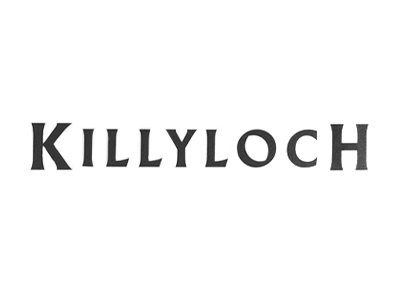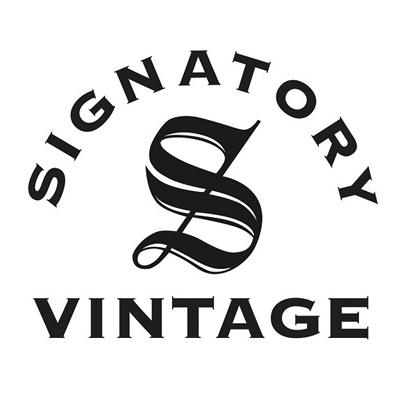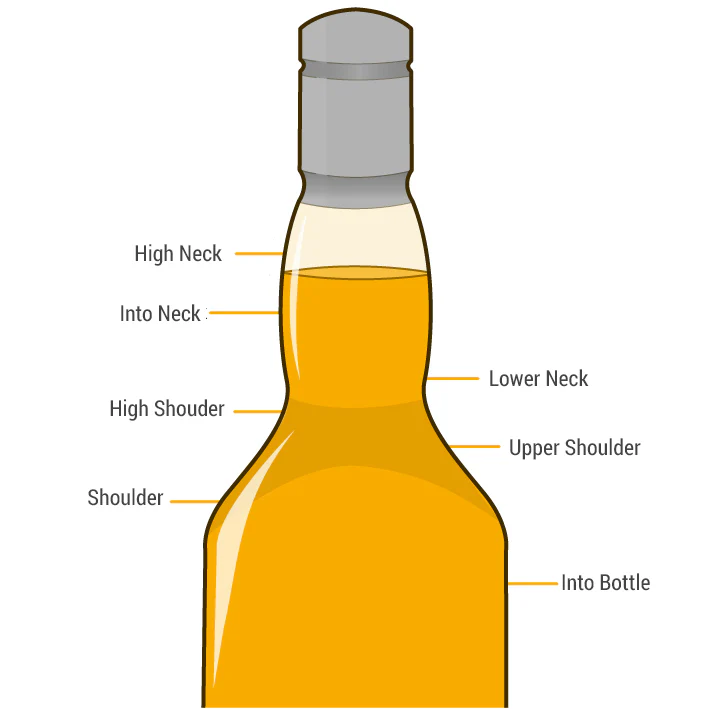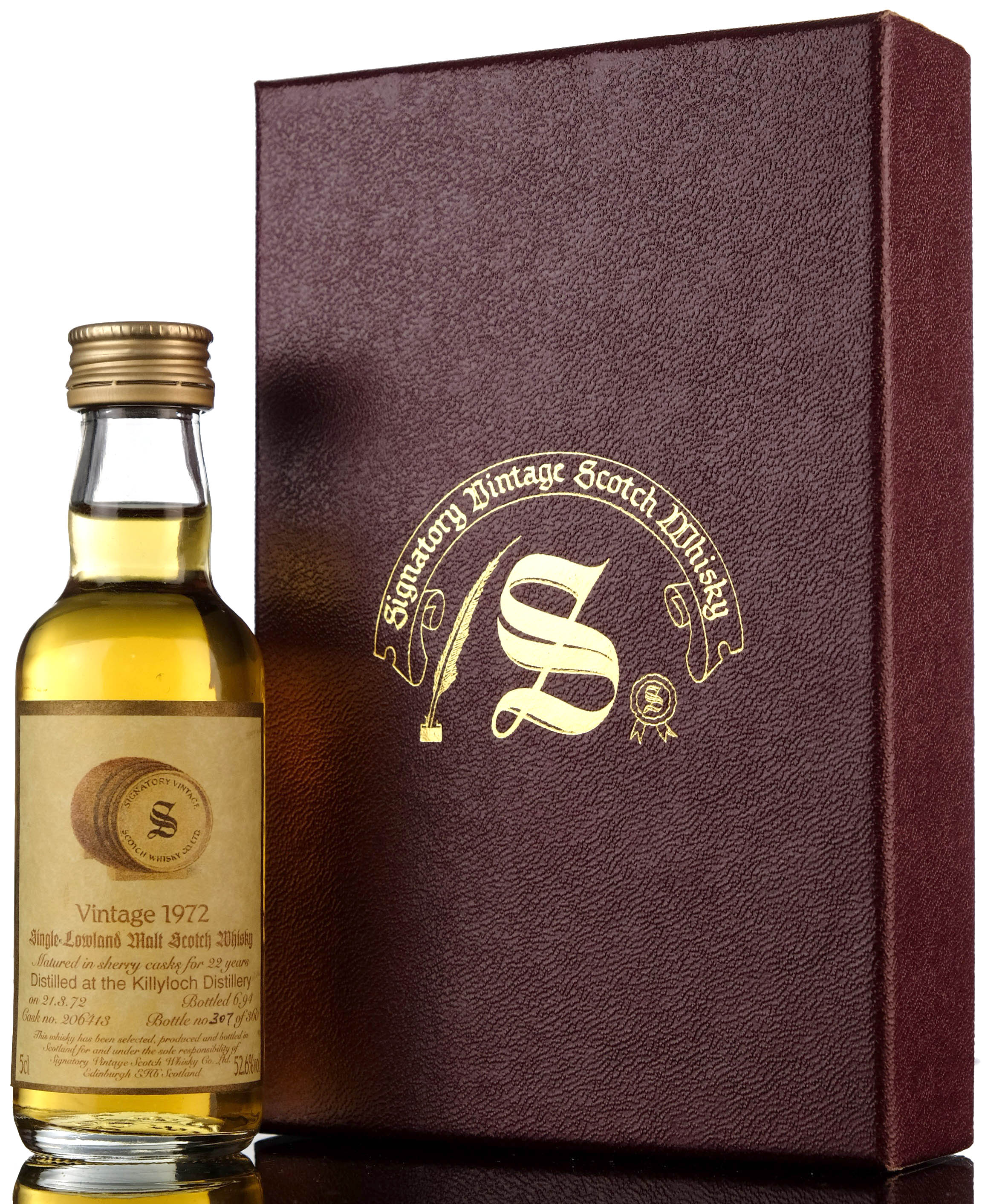End Date : Oct 20 2019 08:00 PM
We may have sold this bottle before. Click the graph below to view our sales history.

Killyloch distillery was part of the Moffat complex, a former paper mill converted into a distillation plant in 1965 by Inver House Distillers. The Moffat complex encompassed a grain distillery (Garnheath), and the Glen Flagler and Killyloch malt distilleries. Sadly, Killyloch was closed in the early 1970s after only a few years of production. The Moffat complex was demolished in 1988.
Killyloch’s standard malt was a lightly peated Lowland spirit, but the distillery also made a heavily-peated spirit known as Islebrae. Islebrae was never bottled, however, and only two Killylochs are known to exist: a 1972 sherry cask bottled by Signatory Vintage in 1994, and an official 1967 36-year-old bottled by Inver House in 2003, which consisted of the last six casks of Killyloch, but yielded just 371 bottles. Killyloch is one of Scotch whisky’s rarest ‘unicorn’ single malts, and its prices at auction reflect this scarcity.

Signatory Vintage Whisky Company was founded by Andrew Symington in 1988 after a spell as assistant manager at the Prestonfield House Hotel, where he had the opportunity to buy a cask of Glenlivet 1968. A robust and canny businessman, Symington had soon acquired some outstanding parcels of casks from great distilleries, and quickly established a reputation among single malt fans for good value, high quality single casks, the majority of which were released at full strength.
Throughout the 1990s and beyond, Signatory released outstanding whisky from Ardbeg, Glenfarclas, Springbank and many more, with frequently remarkable examples of lost or obscure distilleries. Soon established as one of the leading new wave independent bottlers, Symington was also an early exponent of bottling whiskies without colouring or chill filtration, a policy that has also served Signatory well at their Edradour distillery, which was purchased in 2002.




